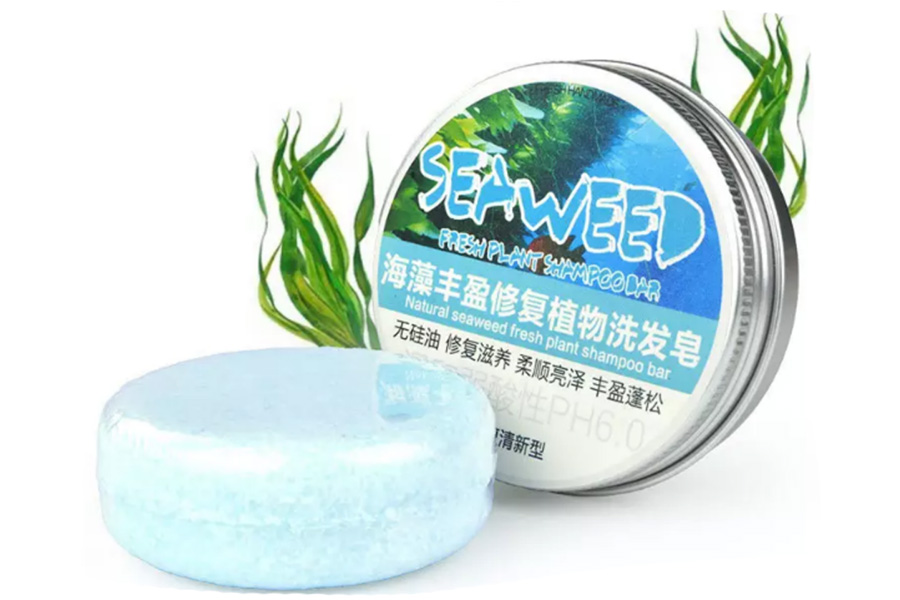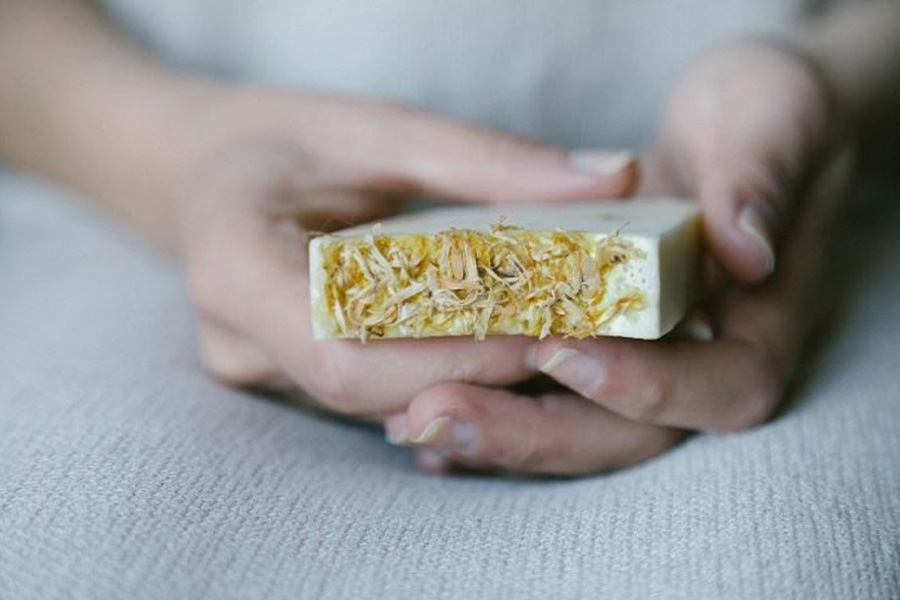Bar soap is back and better!
More than being a relic from the past, solid soaps are making a comeback and topping the trends for their myriad of skincare uses. With several green attributes, including their eco-friendly packaging, solid soaps pique consumers’ interest in making sustainable choices.
Skincare brands looking to ride this wave must consider the following industry trends to remain competitive.
Table of Contents
Market growth for the solid soap market
5 solid soap trends to watch
Moving forward
Market growth for the solid soap market
Skincare consumers’ behavior toward beauty and personal care drives the demand for organic bar soaps. These soaps are also gaining popularity due to their versatility, portability, and immense skincare benefits.
This growing adaptability made the global organic bar soap market reach a value of $1.83 billion in 2021. But, recent forecasts project it to grow at a CAGR of 8.2% from 2022 to 2030, with the Asia Pacific dominating the market with a 33.1% share of global revenue.
5 solid soap trends to watch
The following trends will give skincare brands a competitive edge and increase revenue;
1. Soap formulas that match consumers’ needs
Some consumers want fair skin, a supple look, and a glow. In comparison, others want to treat skin conditions like acne, eczema, and wrinkles. Solid soaps with custom formulas can meet these various skin care needs.
For example, natural ingredients like oats and honey are excellent for sensitive skin, and rose soaps are great for dry skin.
Oatmeal treats acne and eczema by removing oil, dirt, and dead skin, thus reducing skin inflammation. Honey, too, is rich in antioxidants that prevent wrinkles, keeping the skin supple and fresh.
In essence, oats and honey soaps are great remedies for skin hydration and rejuvenation.
Rose soaps contain oil from rose petals, which have vitamins and minerals terrific for dry skin. These soaps soften and moisturize the skin, with the Vitamin C protecting it from harmful sun rays.
By offering different formulations of soap ingredients, consumers can choose several options that best suit their needs, helping to improve their skincare routine. This provides an avenue for wholesalers to maximize profit with increased patronage.
2. Soaps rooted in local culture
Asia pacific dominated the organic bar soap market, so solid soap businesses can take advantage of their increasing demand to provide soaps rooted in their local culture. This can attract buy-ready consumers, giving these businesses a higher chance of market penetration.
But they must understand the uses of these ingredients in their culture to communicate their benefits to consumers effectively.
For example, soaps like rice milk soap and charcoal soap are inspired by the rituals of Korean bathhouse culture and skincare routine.
For years, Koreans have used rice milk in their skincare routines. Rice milk whitens the face and leaves a gentle glow. It also moisturizes and removes excess oil from the skin.
Since Korean bathhouses use charcoal to detoxify, exfoliate and brighten the skin, skincare businesses should consider charcoal for its purifying properties for skin health.
To increase revenue and offer a luxury beauty experience, infuse traditional wellness practices and local ingredients rooted in culture to promote your business.
3. Waterless and gentle facial soaps
Waterless face soaps are sustainable. Apart from using little to no water during production, they can be preserved with eco-friendly preservatives. They also tend to last longer, as a little goes a long way for people with intensive skincare routines.
Gentle facial cleansing bars are also ideal for consumers with sensitive skin. They’re popularly made with castor oil and coconut oil to prevent wrinkles, dryness, and acne.

The moisturizing properties of coconut oil contribute to smooth, soft skin, providing B Vitamins, minerals, and trace elements. Further, coconut oil supports wound healing and inhibits inflammation, making it a suitable treatment for irritated or stressed skin.
On the other hand, castor oil contains ricinoleic acid, which helps fight acne-causing bacteria. It penetrates easily into the skin layer and makes it smooth and supple. The natural properties of castor oil make it a popular ingredient for gentle solid soap formulations.
4. Solid soaps for black skin
Black brands form only 2.5% of the revenue in the beauty industry. Although the market is under-served, it creates a profitable opportunity for new businesses investing in soaps for black skin.
Natural ingredients like shea butter and aloe vera are suitable for black skin. Shea butter resists eczema, soothes burns, and gently fades scars. It also contains antioxidants that protect the skin from photoaging.

Soaps for black skin are also made with aloe vera to relieve itchiness, soothe dry skin, and moisturize it for a healthy glow. It also kills bacteria and fungi, making it effective for people with various skin conditions like acne and eczema.
Hence, soaps with aloe vera and shea butter can restore skin elasticity and vitality.
Businesses must research and sell soaps with the right ingredients for black people to carve a name for their brand in this market. This will help them penetrate the black soap niche market and generate more revenue.
5. Solid soaps infused with supplement-based ingredients
According to Scientific American, a person produces about 1% less collagen in the skin each year once they turn 20. As a result, the skin becomes thinner and more fragile with age. For this reason, collagen bar soaps are fantastic for replenishing moisture and improving skin elasticity.
For example, fish collagens derived from fish skins, bones, and scales reduce wrinkles and cellulitis and prevent skin damage from free radicals.

Plant-based products like papaya soaps are rich in Vitamin C, stimulating collagen production in the skin and treating hyperpigmentation.
Offer soaps that contain these health supplements to appeal to older consumers and boost sales. Also, pay special attention to soap manufacturers with less aggressive soap-making processes, as they better preserve natural ingredients making the soaps more effective.
Moving forward
To conclude, conventional soap is made with chemicals that harm the environment and our health. Solid soap bars, on the other hand, are eco-friendly, consume less electricity, and require less packaging.
Many eco-friendly soap brands contain organic and natural ingredients, are chemical-free, and use thoughtful packaging.
To follow the bar soap industry trends, focus on ideals and interests that matter the most to consumers. Along with being eco-conscious and maintaining a youthful look, some consumers also want to treat skincare issues.
Research upcoming markets like the black soap niche to establish a strong market share and become the go-to brand for underserved communities.




